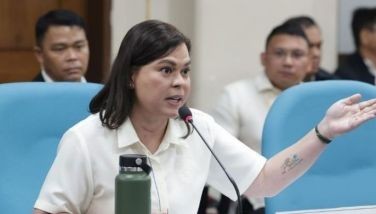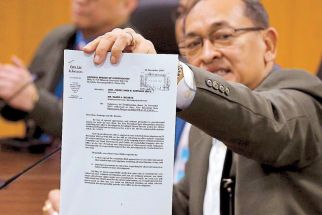House to amend law on foreign currency deposits
MANILA, Philippines - The House committee on banks agreed yesterday to recommend changes in the law protecting the secrecy of dollar and other foreign currency deposits.
The committee, chaired by Leyte Rep. Sergio Apostol, arrived at the consensus during a hearing on seven bills seeking to lift in certain cases the absolute confidentiality of foreign currency deposits under Republic Act 4626.
The panel formed a technical working group that would harmonize the bills and the sentiments of the committee and come up with a consolidated bill. Parañaque Rep. Roilo Golez was named head of the group.
Apostol told reporters that his committee would convene again after President Aquino’s State of the Nation Address before Congress later next month to discuss the consolidated bill and endorse it to the House for approval.
He said the proposed changes in the foreign currency deposits law were an offshoot of the recently concluded impeachment trial, specifically the assertion of ousted chief justice Renato Corona that the law affords his dollar deposits absolute secrecy.
In fact, Corona argued that RA 4626 prohibits him from declaring his dollar deposits in his statement of assets, liabilities and net worth (SALN).
Toward the end of his trial, Corona admitted he owned $2.4 million and P80 million in bank deposits, which he did not declare in his SALN. Many senator-judges cited such admission in voting to convict him and remove him from office.
During the hearing of Apostol’s committee, the Anti-Money Laundering Council (AMLC), Bangko Sentral ng Pilipinas (BSP), Department of Justice, and Philippine Deposit Insurance Corp. (PDIC) expressed support for the bills that would relax the secrecy of bank deposits.
The bills’ authors include Joseph Victor Ejercito of San Juan, Neri Colmenares and Teddy Casiño of Bayan Muna, and Antonio Tinio of the Alliance of Concerned Teachers.
The authors said they want the confidentiality exemptions in the general law on bank deposits, Republic Act 1405, otherwise known as the Bank Deposits Secrecy Law, to be the same as those in the special law protecting the secrecy of foreign currency accounts.
Under RA 1405, all deposits, including investments in government bonds, enjoy absolute confidentiality.
These “may not be examined, inquired or looked into by any person, government official, bureau or office, except upon written permission of the depositor, or in cases of impeachment, or upon order of a competent court in cases of bribery or dereliction of duty of public officials, or in cases where the money deposited or invested is the subject matter of litigation.”
- Latest
- Trending






























